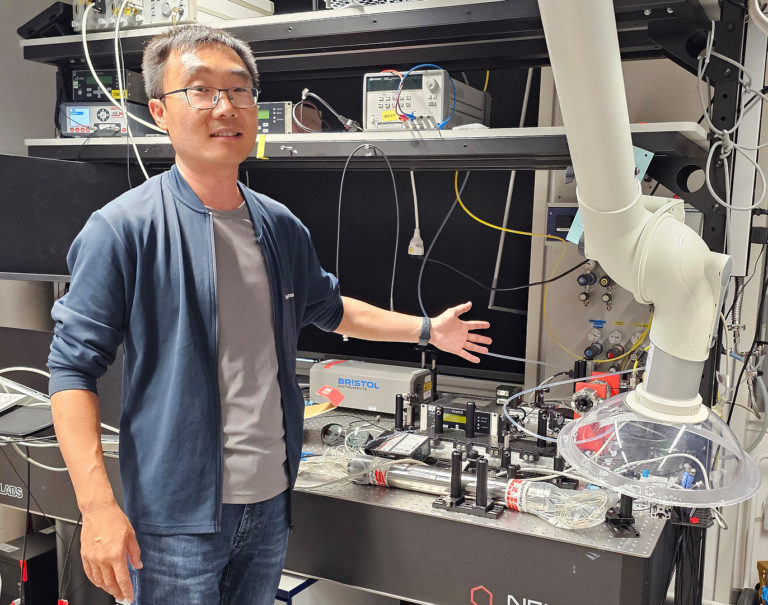
The project (23IND09 MaritimeMET) has received funding from the European Partnership on Metrology, co-financed from the European Union’s Horizon Europe Research and Innovation Programme and by the Participating States
About the project
In July 2023, the International Maritime Organization (IMO) revised their 2018 strategy (MEPC 73) target to reduce emissions further through a commitment to ensure the uptake of alternative zero and near-zero greenhouse gas (GHG) fuels by 2030. To achieve this, metrological support is needed to accelerate the deployment of sustainable fuels like methanol, dimethylether, and ammonia in this sector.
Currently, the sector requires traceable measurements of emission components according to the International Convention for the Prevention of Pollution from Ships (IMO MARPOL), Regulations 13 and 14. There is an inherent need to ease the availability of traceable standards, check the compatibility and ability of existing and new emission monitoring techniques to accurately measure pollutants from future fuels, along with a better understanding of instrument characterisations and their uncertainties (i.e., span drift, instrument linearity, and cross interferences). Calibration of measurement systems using gas standards (required below 2 % uncertainty) can be substituted by spectroscopy-based techniques. However, these are only established for specific species (e.g. NO2) at limited pressure, temperature, and gas matrix operating conditions and must be explored for existing and new species relevant to future fuels
The transition to renewable energy carriers necessitates further engine system development and retrofitting of existing power units and after-treatment systems. These activities require traceable measurements of dynamic pressure and temperature at engine operating ranges to monitor and optimise the in-cylinder processes for efficient operation. The dynamic sensors used for this purpose are quasi-statically calibrated, which can lead to significant uncertainties and require traceable measurement methods.
Engine manufacturers require accurate sensors with traceable measurement methods to reduce uncertainties during the R&D phase. There is a need to increase the reliability of low-cost sensor data deployed in different engine systems through machine learning approaches. However, machine learning models require large amounts of accurate and traceable data. The combined needs must be addressed through testing low-cost and high-quality sensor techniques in application test benches, and in the process, this can lead to exploring cost-effective virtual sensor concepts


